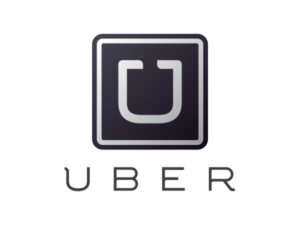
Florida Department of Economic Opportunity Executive Director, Jesse Panuccio, has issued a final order on the employment classification for Uber drivers in the state. The Department has determined Uber drivers are classified as independent contractors under Florida law.
The final order states, “The Department finds that the drivers at issue here—providers of transportation services through the Uber software application—are independent contractors, not employees, and are therefore not entitled to file for unemployment insurance in Florida.
“Uber is a technology platform that, for a fee, connects transportation providers with customers seeking transportation. The agreement between drivers and Uber specifies that the relationship is one of independent contractor, and the actual course of dealing confirms that characterization. Drivers have significant control over the details of their work. Drivers use their own vehicles and choose when, if ever, to provide services through Uber’s software. Drivers decide where to work. Drivers decide which customers to serve. Drivers have control over many details of the customer experience. Drivers may provide services through, or work for, competing platforms or other companies when not using the Uber application. On these facts, it appears that Uber operates not as an employer, but as a middleman or broker for transportation services.
“Two other jurisdictions—California and Oregon—have in recent months come to the opposite conclusion, finding that drivers using the Uber software are employees under the law of those states. These opinions are not persuasive, as they largely ignore the contract, and misconstrue the actual course of dealings, between the parties. To a significant extent, these rulings appear to rest on the fact that Uber could not be in business without drivers. But the same is true of all middlemen. Uber is no more an employer to drivers than is an art gallery to artists. Just as technological advances have amplified the reach of social networks through applications like Facebook and Twitter, such advances have also amplified the reach of commercial relationships through applications like Uber, eBay, StubHub, Airbnb, and Amazon Marketplace. None of these commercial platforms would be in business without the goods and service providers who use the platforms, but that does not mean the providers are automatically employees of the platform company. Modern technology is enabling a rapidly evolving and expanding network of willing buyers and sellers to open once-restricted markets and efficiently allocate resources. These platforms are helping people pursue what has always been an important part of the American dream: to be one’s own boss. The technology is novel and the economic transformation is important, but the law is straightforward. The transportation providers at issue here were independent contractors, not employees, of Uber.â€
The order concludes, “The Internet and the smartphones that can now access it are transformative tools, and creative entrepreneurs are finding new uses for them every day. People are being connected in ways undreamed of just a decade ago. This is as true for business relationships (through software like Uber) as it is for social relationships (through software like Facebook)… Just as many more people can now publish their own thoughts to a vast audience, many more people can now offer their services or hawk their wares to a vast consumer base. This is economic progress based on new technology, but the law’s foundational principles are equipped to handle these changes. We need not break new legal ground or upend economic progress by transforming middlemen into employers.â€